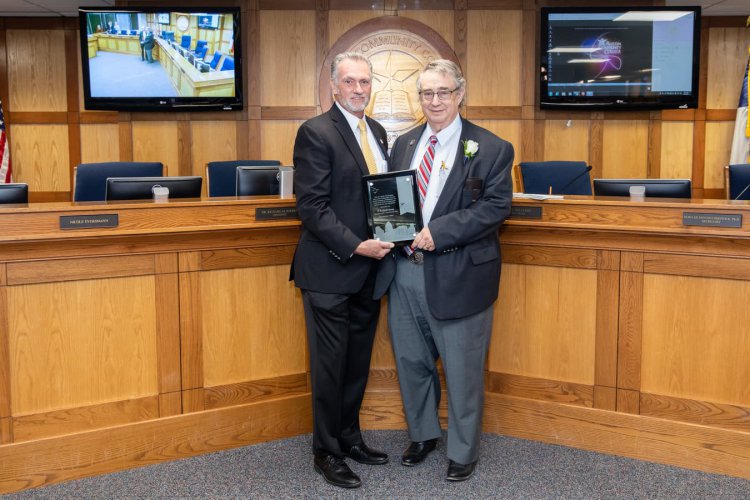Retiring CPPPS founding director inspired the next generation of civic leaders
William 'Peck' Young may be known as a tough operative in the political arena —
"'Get out of my way' — I was famous at the Capitol for saying that. I was never paid to be pleasant. I was paid as a professional for things that aren't pleasant."
But, when it comes to his students, he takes a different tone.
"The students are why I came to Austin Community College. The students are why I stayed here. Working with students is what mattered to me. It's been a long, good run."
When Young came to ACC in 2007 to lead what would eventually become the college's Center for Public Policy & Political Studies (CPPPS), he brought with him decades of knowledge and a deeply-rooted passion for politics.
GROWING UP IN POLITICS
"I got started when I was six years old. My father had me passing out political literature for the Masonic lodge."
It wasn't until college that he got actively involved in politics by volunteering with the National Association for the Advancement of Colored People (NAACP) to do voter registration. In 1970, Young served as a marshal for a student march in Austin protesting the Cambodian incursion by Vietnam. "During that march, it occured to me that if we could get 25,000 students to march, we could get them to vote."
He helped register 19,000 students and, in 1971, voters elected a new city council, which included the first African-American Austin city council member since the Reconstruction era.
It was this success that propelled him to go from political volunteer to leader.
TRANSITIONING TO A CAREER
While earning his master's degree at the University of Texas LBJ School of Public Affairs, he commanded a student group that worked to support candidates at City Hall and in statewide offices.
Young helped Jeff Friedman, Austin's first Jewish mayor, get elected in 1975, and started his own political consulting firm after that.
He worked on campaigns for two presidential candidates in Texas, many statewide candidates, eight Senate candidates, and six Congressional candidates. His most well-known clients include Texas Governor Ann Richards (1990-1994), Texas Governor Mark White (1983-1987), Texas Lieutenant Governor Bob Bullock (1991-1999), and Texas Comptroller John Sharp.
Locally, he worked on many Austin mayoral campaigns from 1975 until 1997 and was a volunteer consultant to help the passage of the Austin City Council 10-1 effort in 2013, which redesigned Austin's seven-member, at-large City Council to a 10-member districted council with an at-large mayor.
In 2006, Young and his partner decided to wrap up the firm. "We were getting older and consulting is a 24/7 business. We decided we were smarter than the young ones, but we weren't in as good a shape."
COMING TO ACC
Young left politics and came to ACC to head the CPPPS.
"The biggest thing for me was a change in the whole atmosphere."
Young admits it was a huge adjustment from politics to academia, but the work the center was doing and the students made it all worthwhile.
"All of our stuff has always been focused on student success. Our internships have resulted in 40 percent of our students receiving job offers and we also won an award for our annual Constitutional Day programs."
He talks about some of his former students with pride — a young man who went to jail as a juvenile and became a community organizer and writer; a veteran who had been third in command on a nuclear submarine and is now a senior official in the veterans administration; and a woman who reluctantly got involved in politics and eventually became national staff for Bernie Sanders' previous presidential campaign.
"We've got good talent and I love them. That's what kept me going all these years. They're all the same kind of bright energy, and they don't come here to slough off. They're here to get things done, to get an education, get on to another school. The ones I've seen, they want to make an impact. You're just amazed at the talent and motivation these young people have."
Now that he's retiring, Young hasn't decided what to do next after spending some time with his wife, but he knows what he's going to miss the most: the students.
